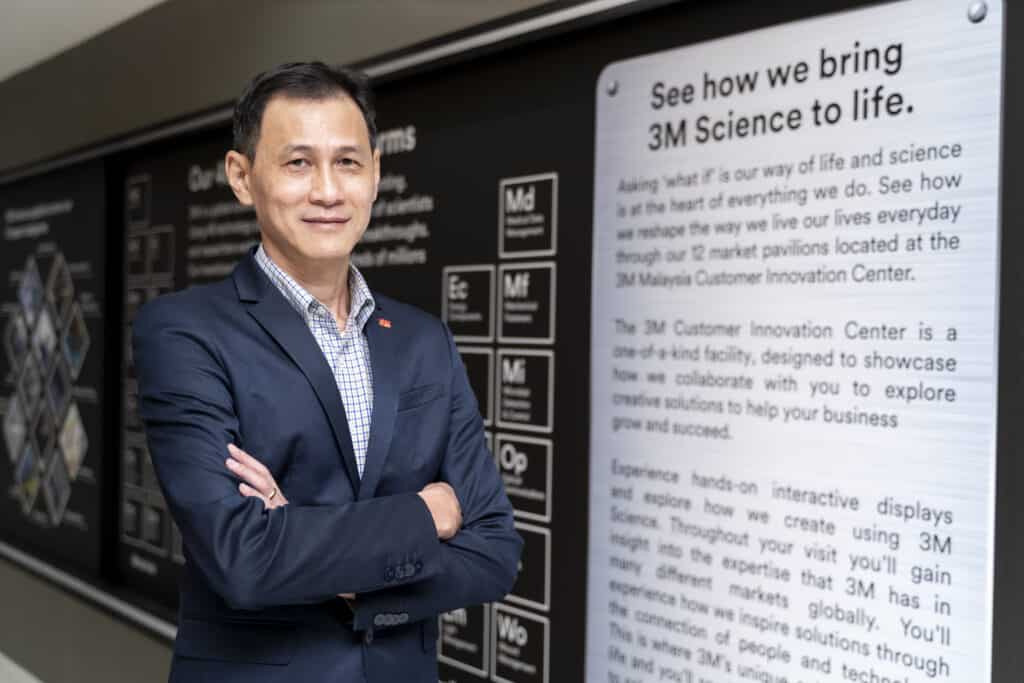
27th January 2021, Kuala Lumpur – Whether we have noticed or not, there are persisting forces shaping the world around us. These megatrends enable us to consider our world 5 to 10 years – or more – into the future to help us make more-informed decisions now. Although events like the COVID-19 pandemic will cause short-term headwinds to some key trends, and tailwinds to others, these megatrends are expected to persist into the future.
For a fast moving economy like Malaysia, with a projected GDP of 3.4 trillion by 2030, as part of the Shared Prosperity Vision 2030, keeping an eye on these trends will enable businesses to better shape their transformation strategies. “The pandemic is further proof of Malaysia’s quick adaption to technology, as we quickly adapted new technologies in healthcare, education, and other sectors to respond to the crisis. As we continue our journey toward further economic growth, the trends that we have observed now will play a major role in how businesses transform over the decade,” says GT Lim, Country Leader of 3M Malaysia.

So, what will the world look like in 2030 and beyond? 3M is exploring this question and the impact enduring megatrends could have on our ever-evolving world, as well as the role we have in adapting to and influencing them.
Technological breakthroughs
Technology has long been a measure of human advancement and power. Today, the next technological revolution is well underway, and the world is rushing to adapt to the rising speed of development.
The coronavirus is driving the acceleration of technology adoption and breakthroughs[1]. Artificial intelligence has already played a pivotal role in bringing the development and rapid adoption of technologies such as quantum computing, zero-carbon battery development and personalised medicine.
With a surge of 5G infrastructure and the maturing of key technologies, the world of the next five years is likely to change even faster than the last.
As this infrastructure gets built out, 5G and AI-enabled technologies will begin to become standard operating practice.[2] In fact, the first fully autonomous vehicle ecosystems may start to appear in countries like Singapore, a country uniquely situated to execute smart-city infrastructure at scale.
A 5G infrastructure will also see expansion in e-commerce, and retail will see dramatic continued disruption while the industry evolves into an omnichannel model. Beyond retail, disruption is likely to occur wherever technology or shifting consumer preferences change the metrics of competition.
With such unprecedented growth in technology, increased regulation is likely to occur globally in the areas of data privacy, antitrust and inequsality. For companies, that momentum drives the need to prepare for regulations internally and seek out opportunities to demonstrate ethical leadership.
Changing climates and resources
Concerns related to climate change will continue as previous measures to reduce carbon emissions have not taken a strong enough hold to appropriately mitigate the continued average global temperature increase.
In this environment of increasing threats, partnerships regarding climate change between the public and private sectors will also continue, with multinational companies setting many more stringent goals for curtailing emissions due to their need to operate across multiple regulatory spaces.
As society and industry continue to see the need for resilient electric grids to protect against increasing natural disasters and intense weather events, distributed generation and storage models will begin to more significantly compete with the traditional hub-and-spoke model. These systems are expected to experience rapid growth in the next five years.
While consumer awareness and positive sentiment around recycling has grown, the economic driver of profiting from selling recycled materials moves the market more forcefully than consumer preference. Recycling of precious and base metals will continue and manufacturers will look for ways to repurpose waste created during production process[3]. The industry can expect a similar optimization within the food supply chain as consumers become more aware of waste generation and management.
Shifting demographics and social change
Demographic and social change is foundational, affecting all other trends. People’s relationships to society, community and government evolve at different rates and in different ways around the globe, but common trends still emerge.
As the global urban population surpasses 5 billion by 2030, urbanisation will continue to shape economies and societies.[4] Urbanization has the potential to become a positive transformational force – properly planned and managed, it can improve employment opportunities, energy efficiency, public health, education and quality of life.
However, with rapid urbanisation, we will see challenges in finding the right infrastructure – both physical and technological – and services to meet the demands of a growing urban population.
Increasing urbanisation will also impact the way we work. Workers are likely to feel financial strains in the years to come, from both a continuation of preexisting trends and as repercussions of the COVID-19 crisis. Workers in countries with large youth bulges will continue to struggle to find and maintain quality employment. While the gig economy is projected to grow, a great deal of future expectations will be determined by the length and depth of the fallout from the COVID-19 crisis.
The adoption of artificial intelligence, automation and other Industry 4.0 innovations has the potential to change work for the better, improving business operations, enabling human counterparts to make better decisions and automating tasks to free up workers to be more creative [5]. Trends in alternative work will continue as workers seek flexibility and employers seek access to specific skills. Companies are likely to continue to expand the use of alternative workforces in functions beyond IT, such as operations, marketing, R&D, HR, sales, customer service, finance and supply chain.
The world is entering another decade of geopolitical and economic change that will certainly rebalance the world’s influencers. The recession will profoundly impact the strategic investment landscape over the next five years. Those companies and countries who can respond to this downturn quickly and strategically will emerge positioned to thrive, whether in supply chains, infrastructure or other strategic investments.
In the wake of global supply disruption by COVID-19, companies will accelerate their pace to diversify supply chains, both to align to national interests and to maintain viability when future crises hit. Some migration of manufacturing jobs will continue (to Eastern Europe and Southeast Asia, for example) but is unlikely to result in new general manufacturing hubs. Infrastructure investments have the potential to create economic growth and could be an important piece of the economic recovery equation for the current crisis.
In wake of weakening international relations and fallouts with international organisations, regional ties are expected to strengthen as trade between regions continues to thrive. Regional structures will step in to maintain cross-border efficiencies that have led to economic and supply-chain stability in previous decades.
The rising influence of individuals is transforming economies and societies. The demands of personalization and shifting corporate expectations have put exceptional pressure on companies to adapt, leaving many of them vulnerable to disruption by new technologies and business models.
Personalisation will be a key differentiator of products and services over the next five years. Personal health will be one of the categories that consumers will care about the most. Over the next five years, focus will shift from reactive health care services to proactive preventive services and telemedicine is expected to become a primary means of contact with the health care system.
Productivity will be another critical area for personalization, with augmentation of human capabilities advancing in numerous ways. In the next decade, augmented reality (AR) products will launch with the potential to become as ubiquitous as cell phones today and with significant impacts on how consumers will shop, work and interact with others. [6]
Digital platforms will continue to be a megaphone for consumers, corporations and governments. Organizations that leverage these platforms to collect feedback and increase communication transparency with their stakeholders will gain greater control over public narratives and might just find inspiration for their next big product or campaign.
With rampant digitalisation and increasing risk of misinformation, ethics will be an issue that will gain importance in the next decade, and experts are predicting the rise of a new CEO – Chief Ethics Officer [7].
The demands of equality and privacy will be some of the most dominant topics of the next decade. Consumers are looking for companies to be good corporate citizens. This could mean paying fair wages and conducting business sustainably, but this will mean different things to different people. On the other hand, the rise of automation, and companies preparing their workforces for a more automated future are taking the right steps. Automation and job disruption go hand in hand, but workforce training and preparedness now will enable a successful transition later.
To understand more about how these trends will impact your business model, read the full report here: https://3mmegatrends.thecampaignroom.com/megatrends
[1] https://www.accenture.com/my-en/insights/technology/tech-vision-coronavirus-trends
[2] https://www.mckinsey.com/featured-insights/artificial-intelligence/visualizing-the-uses-and-potential-impact-of-ai-and-other-analytics
[3]https://www.mckinsey.com/~/media/mckinsey/industries/advanced%20electronics/our%20insights/capturing%20value%20at%20scale%20in%20discrete%20manufacturing%20with%20industry%204%200/industry-4-0-capturing-value-at-scale-in-discrete-manufacturing-vf.pdf
[4] https://population.un.org/wup/Publications/Files/WUP2018-Report.pdf
[5] https://www2.deloitte.com/us/en/insights/focus/cognitive-technologies/ai-adoption-in-the-workforce.html/#endnote-sup-1
[6] https://www.mckinsey.com/business-functions/marketing-and-sales/our-insights/the-future-of-personalization-and-how-to-get-ready-for-it
[7] https://www.forbes.com/sites/insights-intelai/2019/03/27/rise-of-the-chief-ethics-officer/?sh=5fe204c75aba